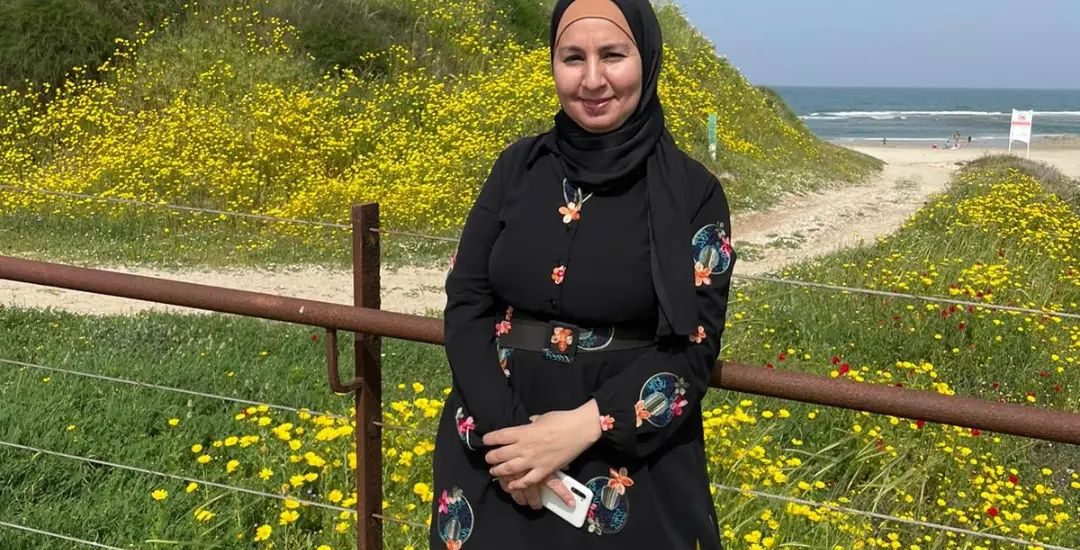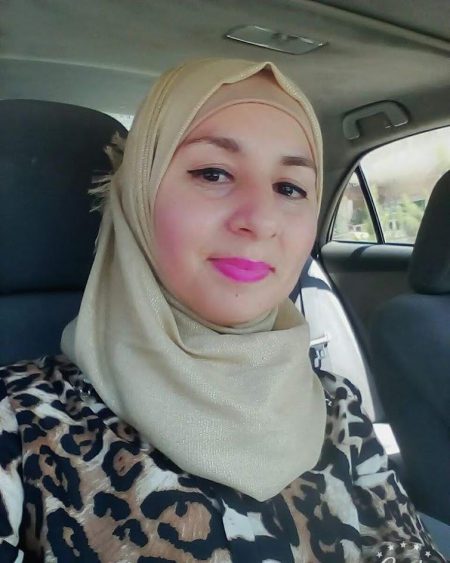
People’s profiles – Dalal Saeed
Haifa University, Israel.
Dalal Saeed is a PhD student in geochemistry, specialized in the mechanisms of 234U enrichment in groundwaters of carbonate terrains.
What field do you currently work in and what is the job title of your current position?

I am currently a PhD student in geochemistry at Haifa University. I am working on a thesis about the mechanisms of 234U enrichment in groundwaters of carbonate terrains. My field is the Dead Sea watershed, and my work is funded by Haifa university and the geological survey of Israel. I work under the supervision of Dr Revital Bookman from Haifa University, Prof Mordechai Stein and Prof Boaz Lazar from the Hebrew University.
In what city, state, and country do you live in and / or work in?
I am living a village in the West Bank, seven kilometers away from Jerusalem. I travel to the lab for the PhD in the laboratories of the Hebrew university and the geological survey of Israel in Jerusalem.
At any point in your career, have you been a refugee or displaced scientist? If so, and should it become possible and safe to do so in future, do you hope to return to your country of origin to help that population heal, build, or rebuild their nation?
Actually, my family was lucky to not be made refugees during the 1948 Arab-Israeli war and creation of Israel. We originated from the village that I am currently living in, in the West Bank. The challenge I face is the restricted movement according to the separation wall between Israel and the Palestinian occupied territories. My advisor Prof Boaz lazar applied for me to obtain an academic permit to solve this issue, in order to go to the university in Israel.
editorial note: please find here a recent article reporting on the challenges of being a Palestinian scientist and having to cross the separation wall to go study on campuses in Israel
If you were not presently in your current job, what alternative career might you have?
If I wasn’t at my present position, I probably would have chosen another PhD position in geochemistry elsewhere. If I needed to choose another subject to study in the natural sciences, I would have liked to study neurosciences.
Does your job involve you undertaking field work each year and do you find this enjoyable?
Yes, sampling on fieldwork (includes groundwater, rocks, and soil) is an important part of my PhD project. I went many times accompanied by my supervisors to collect the samples from many groundwater sources that feed the Dead Sea in the country. I visited wonderful places that I had never been to before. After getting the samples, I prepare them for uranium and strontium isotopes measurement in the clean laboratory.
What are the most enjoyable aspects of your job and what do you like most about your working environment?
Enjoyable aspects of being a PhD student are the flexibility of the work, skills refinement, learning new things and introducing me to new people in academia and at a personal level.
Have you moved countries to pursue and build your career, networks, and credentials?
I participated in the international summer school at the Ruhr university, Germany and the international DAAD Alumni Seminar at university of Duisburg-Essen, Germany. Visiting Germany was good opportunity to meet many scientists and build a network. Through the COVID-19 pandemic, unfortunately, I was no longer able to participate in international conferences.
Given the COVID-19 crisis of 2020-2021 and ongoing, how did you manage your work during this time and in what ways do you feel your productivity and outputs were enhanced or diminished?
COVID-19 was a disaster for my progress. I was not able to attend university for six months, where there was full shutdown. I did not have enough data to work on, at the time. I used this time to read scientific papers and to understand my PhD topic in depth.
Go further:
We are thankful to Dalal for this constructive contribution.
Editorial handling was by EAG DEI Committee members Jabrane Labidi with the help of Amy Riches and Susan Little.
